
Switzerland and the House of Windsor
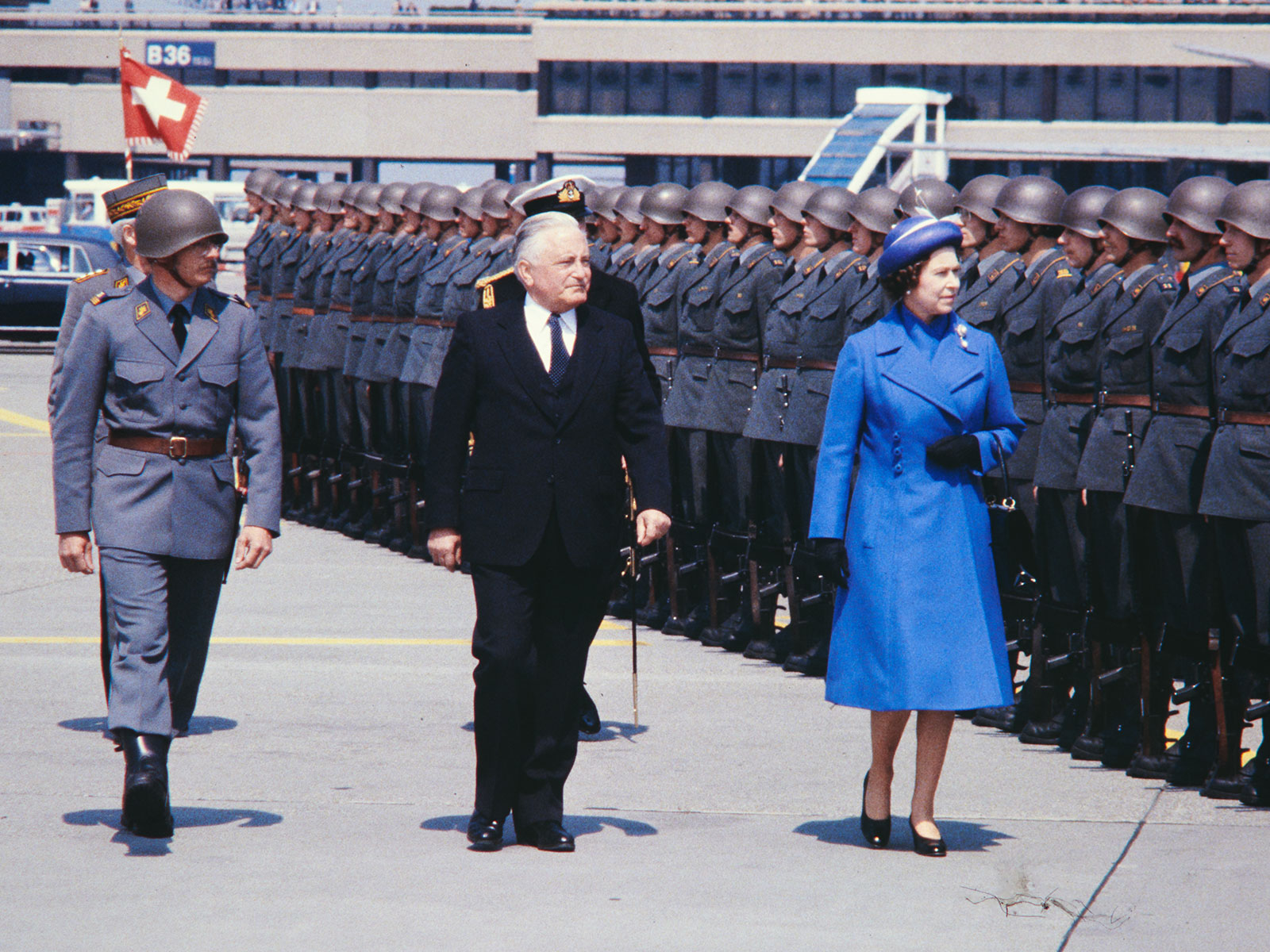
Queen Elizabeth II was at the head of the British Royal Family for 70 years. The House of Windsor maintains a close relationship with Switzerland – not politically, but on a more private level. Here we take a look behind the scenes at the connection between the Swiss and the Royals.
On the one hand the ultra-democratic Switzerland, and on the other the British ruling family – the distance couldn’t be greater. That’s what you might think, but then you get better acquainted around the table. Around the dining table, to be precise. Food connects the two institutions. Here too, we can be more precise: banquets.
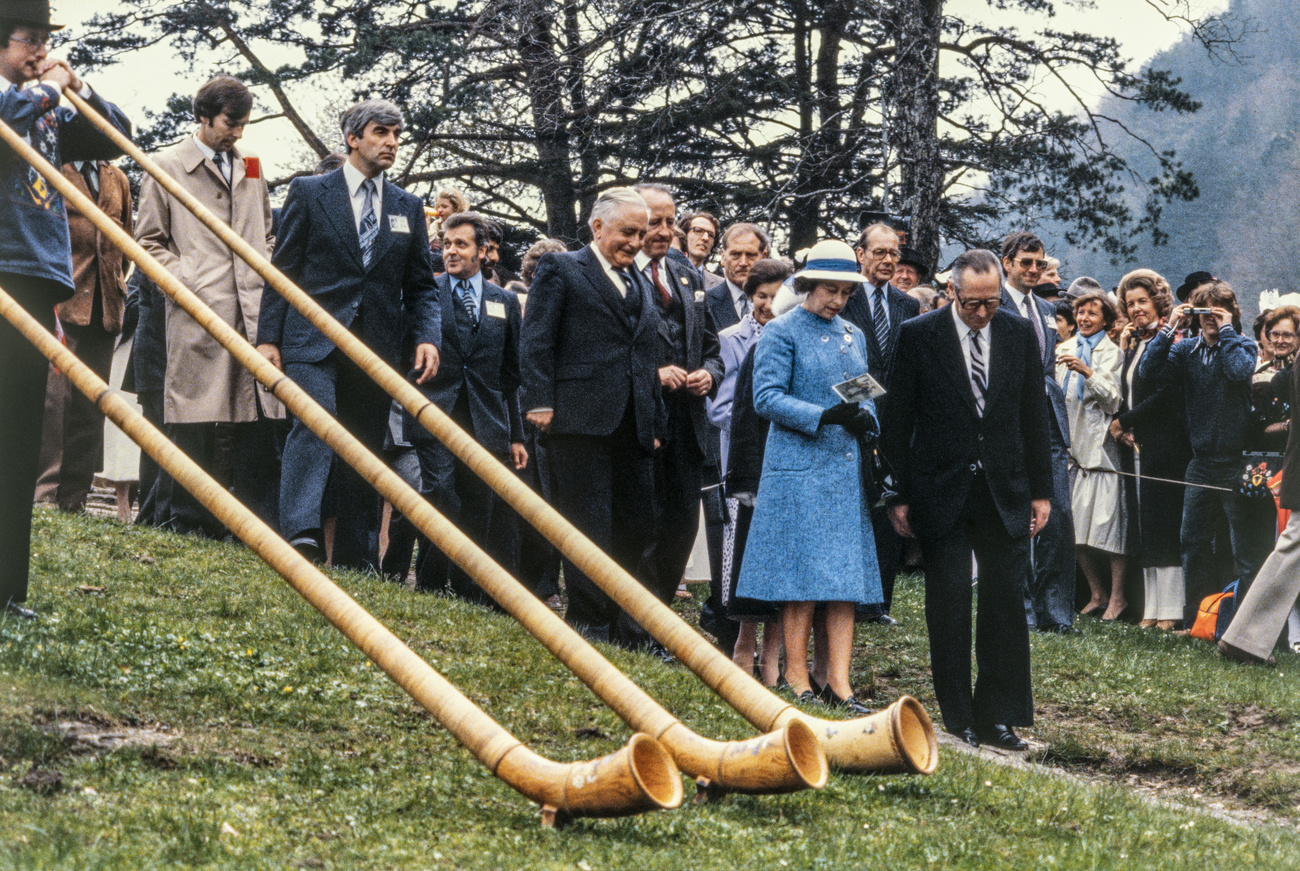
More
When Queen Elizabeth II visited Switzerland
So let’s start with a wedding breakfast. The salmon from English rivers was exquisitely marinated; then there were wild langoustines from Scotland, saddle of lamb from the Highlands, vegetables from Highgrove, English asparagus and Jersey Royal potatoes, and ice cream with honey from Berkshire. This menu not only tasted delicious, but was also a culinary homage to the royal bridal pair and their ancestry. The artfully designed banquet for Prince William and Kate’s 300 wedding guests was put together by a chef whose name was initially kept secret. Only after the high-profile wedding on 29 April 2011 was the name made public: it was, yet again, Swiss celebrity chef Anton Mosimann who had conjured up the royal feast in the ballroom of Buckingham Palace.
SWI swissinfo.ch regularly publishes articles from the Blog of the National MuseumExternal link that are dedicated to historical topics. The articles are always published in German and often in French and English.
This top restaurateur, originally from Nidau in the Canton of Bern, had previously catered for 1,400 guests for Prince Philip’s 70th birthday, and 400 guests for the golden wedding anniversary of Queen Elizabeth and Philip. The ‘Toneli vu Nidau’, as Anton Mosimann calls himself self-deprecatingly, received the Order of the British Empire for his culinary exploits, an accolade that was presented to him personally by the Queen. The fact that Mosimann, a Swiss, was chosen to cook so many royal celebration banquets is typical of relations between the British royal family and Switzerland. The relationship is certainly characterised by trust and warmth, but it works more on an indirect level. That means the connection is not as obvious and direct as in a relationship.
Queen Victoria paints Switzerland
Instead, Queen Victoria loved Switzerland as a holiday destination. When she was in deep mourning after the untimely death of her husband, Albert, she travelled to Switzerland for five weeks to recover. In summer 1868 she visited various places of interest in central Switzerland. Based initially in Lucerne, the Queen walked, rode her ponies, wrote, relaxed and ate. She often took time to sketch the scenery and paint it in watercolours.
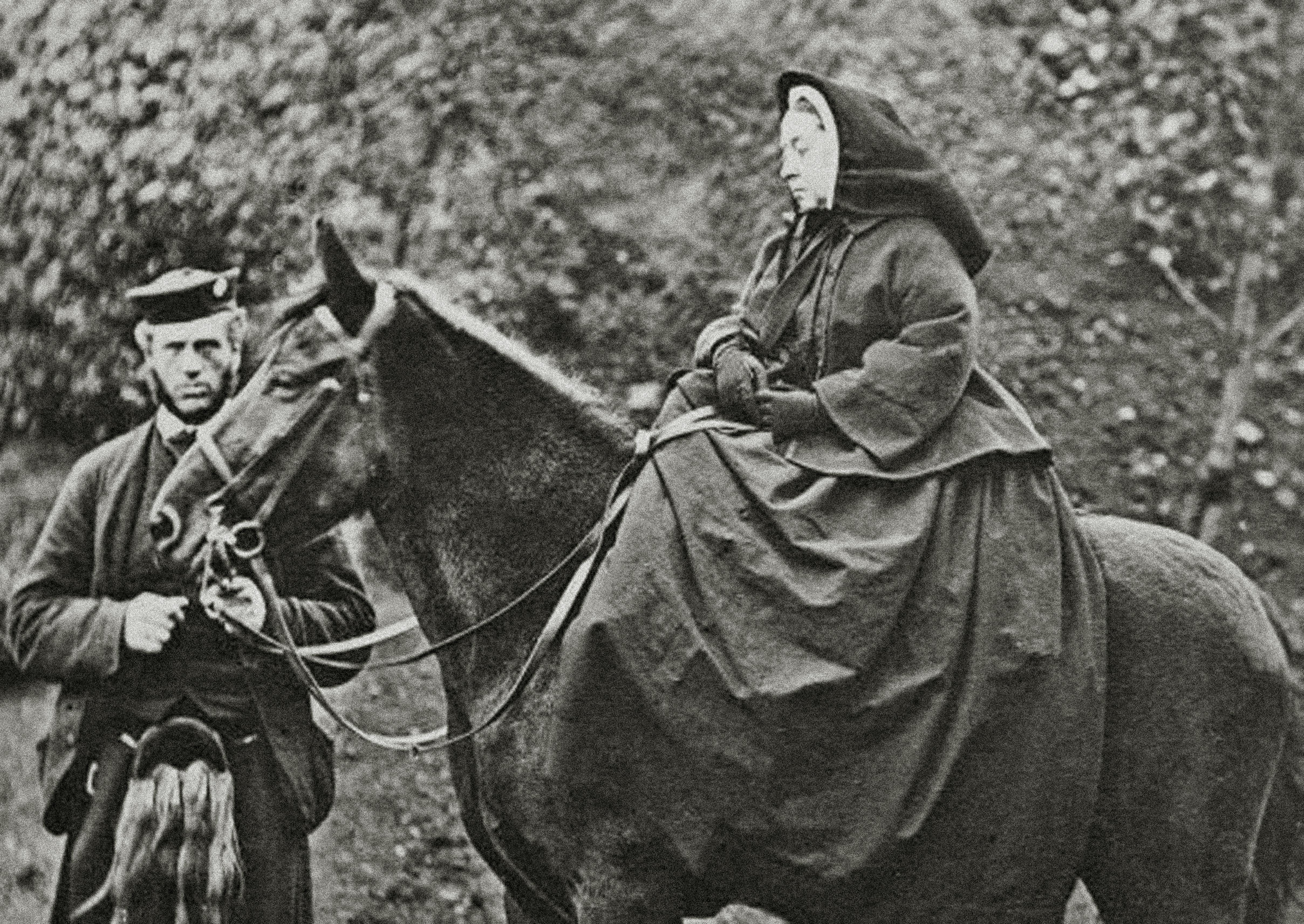
Unencumbered by government affairs and palace squabbles, she actually seemed to relax and revive. She soaked up the landscape and immortalised it in her works. Many of the pictures from this trip survive, and demonstrate the Queen’s patient, unflustered hand.
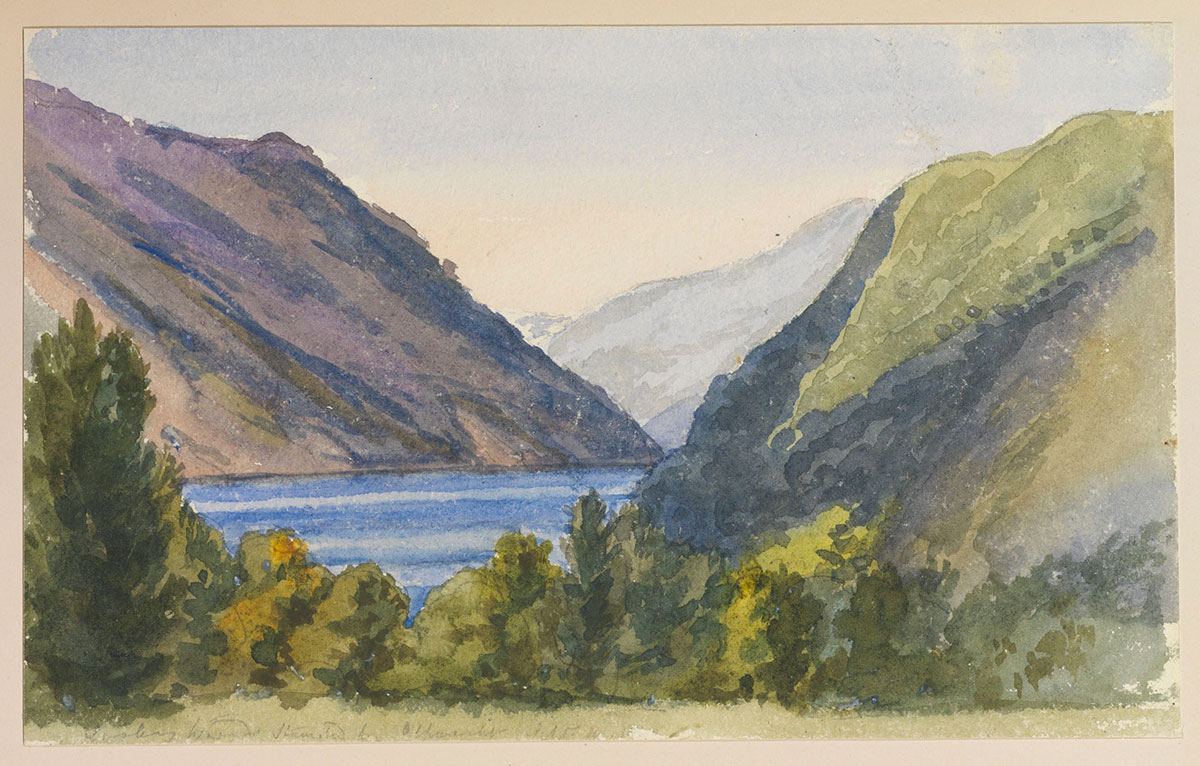
Charles and Andrew go skiing
Victoria’s descendants have also used Switzerland as a holiday destination. The current heir to the throne, Prince Charles, keeps up this tradition, regularly coming to Klosters in winter to indulge in snow sports since 1977. The tragic avalanche disasterExternal link in the Gotschnagrat area on 11 March 1988, in which his friend Hugh Lindsay was killed, hasn’t stopped him. From 1994 onwards, he often took his sons, William and Harry, with him to Klosters. When Charles slipped on an icy footpath in Klosters one evening and only an attendant prevented him from falling, Charles’s rescuer cautiously suggested it would be better to wear winter boots with a treaded sole. The Prince replied casually: ‘In my family I was brought up to wear shoes in the evening.’ Charles’s younger brother Andrew and his ex-wife, Sarah ‘Fergie’ Ferguson, were fans of the Valais resort of Verbier, and so were more likely to be found in Valais than in Graubünden.
But the Windsors haven’t seen Switzerland merely as a holiday destination. They have also used the cachet of the royal crown for political purposes. When relations between Switzerland and the UK were tense after the Boer War, King Edward VII intervened to alleviate the situation. In 1905 he officially congratulated Switzerland on the opening of the Simplon Tunnel and drove through it himself two years later, albeit incognito and without official receptions and meetings.
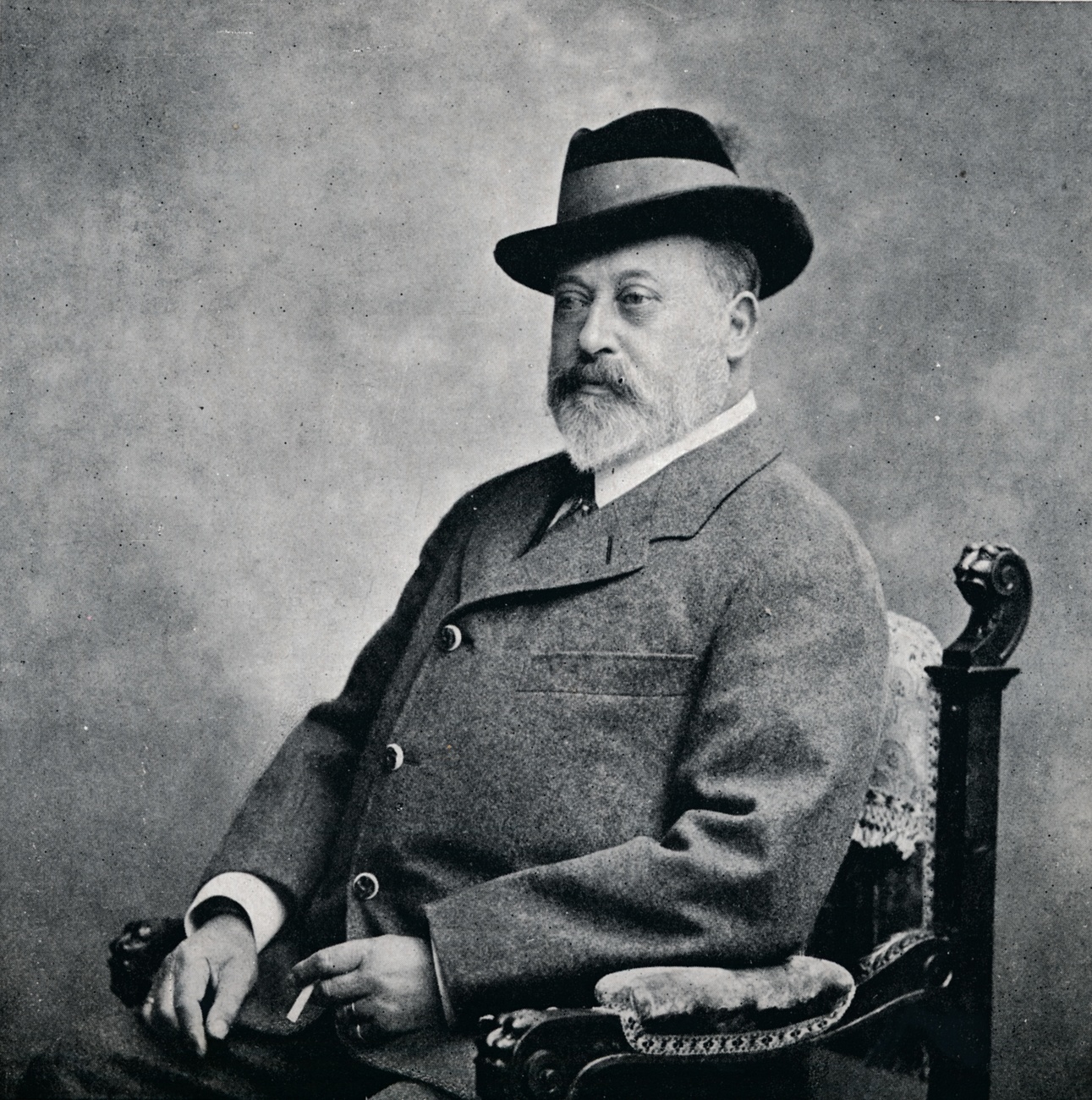
Another example: when the UK was increasingly isolated and struggling with economic problems during the Falklands crisis, at the end of April 1980 Queen Elizabeth II came to Switzerland with her husband, Philip – incidentally, this was the only official state visitExternal link to Switzerland by a British royal. Despite IRA bomb threats and despite eruptions of unrest among groups of Swiss youth, the royal couple visited Zurich, Bern, Basel, Lausanne, Montreux, Lucerne and the RütliExternal link. Even if there were catcalls and boos from members of the youth movement and people opposed to the British rule of Northern Ireland, the majority of the Swiss were very taken with the Queen on her Tour de Suisse, and even more enchanted by Prince Philip, who waved back with much more genuine feeling and was even able to have a good laugh.
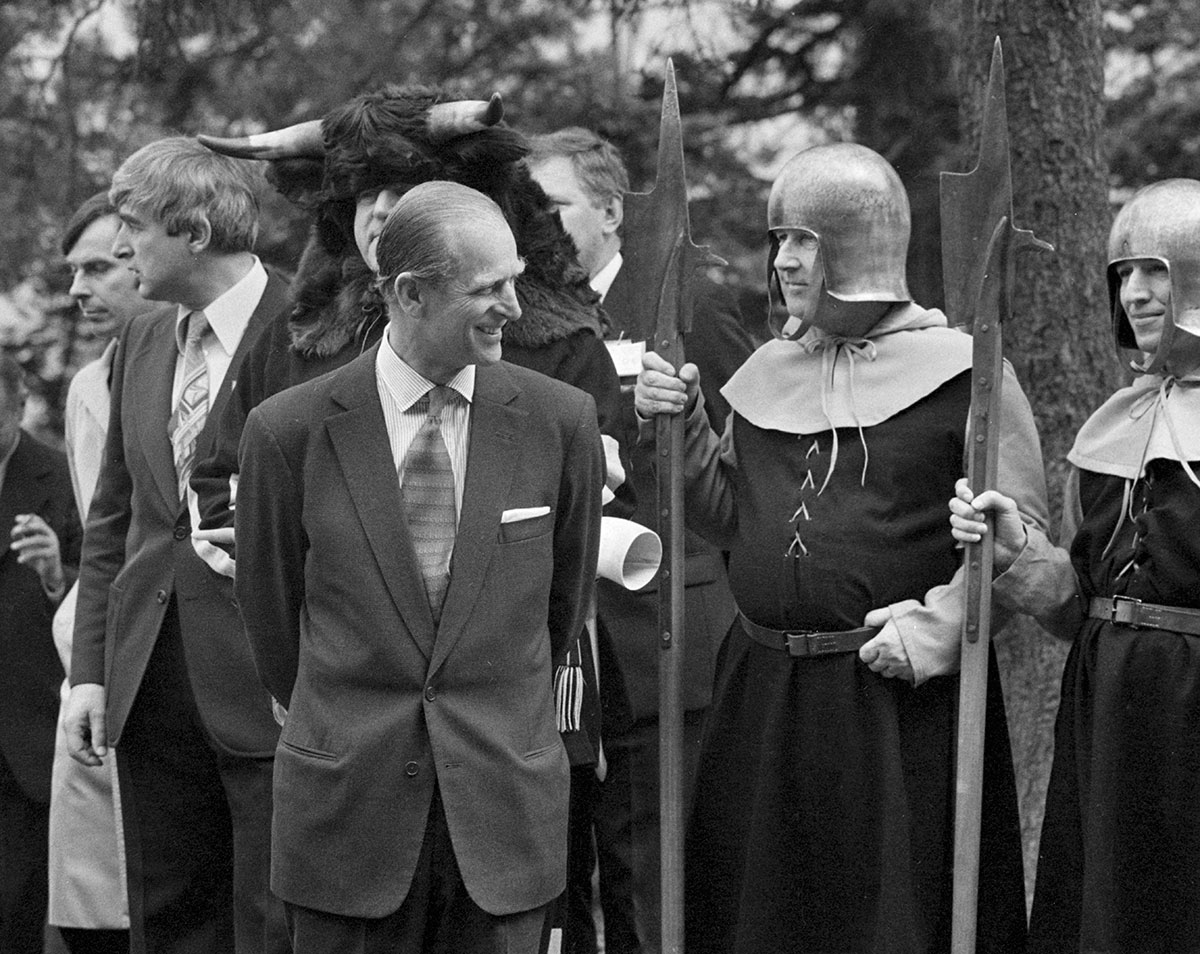
Philip was stopped by Securitas
Philip was in Switzerland more often than the Queen because he was involved in many non-profit organisations. He was President of the WWF, based in Gland in the Canton of Vaud, and President of the Fédération Equestre Internationale, the umbrella organisation of all riders, intermittently based in Bern. So the Duke of Edinburgh was often in Switzerland for meetings. When the four-in-hand driving world championships were held in Zug in 1981, the Prince also took part as a competitor – despite his 60 years of age. He still took 10th place and the bronze medal in the team competition.
At one point the Duke was barred by a Securitas guard from entering the event grounds because he had forgotten his official pass, revealing something of the down-to-earth nature of this particular aristocrat. This episode, which also demonstrates how the guardians of our democratic territory were completely unawed by a genuine blue-blood, happened 40 years ago. But the name Windsor still commands respect in Switzerland. It’s the name of a bar in Sargans, a brand of hand-crafted silverware in Schaffhausen and a fashion label in Kreuzlingen. Only the Hotel Windsor in Geneva no longer relies on the cachet of the name; it’s now called the Hotel Paquis after the district in which it is located.
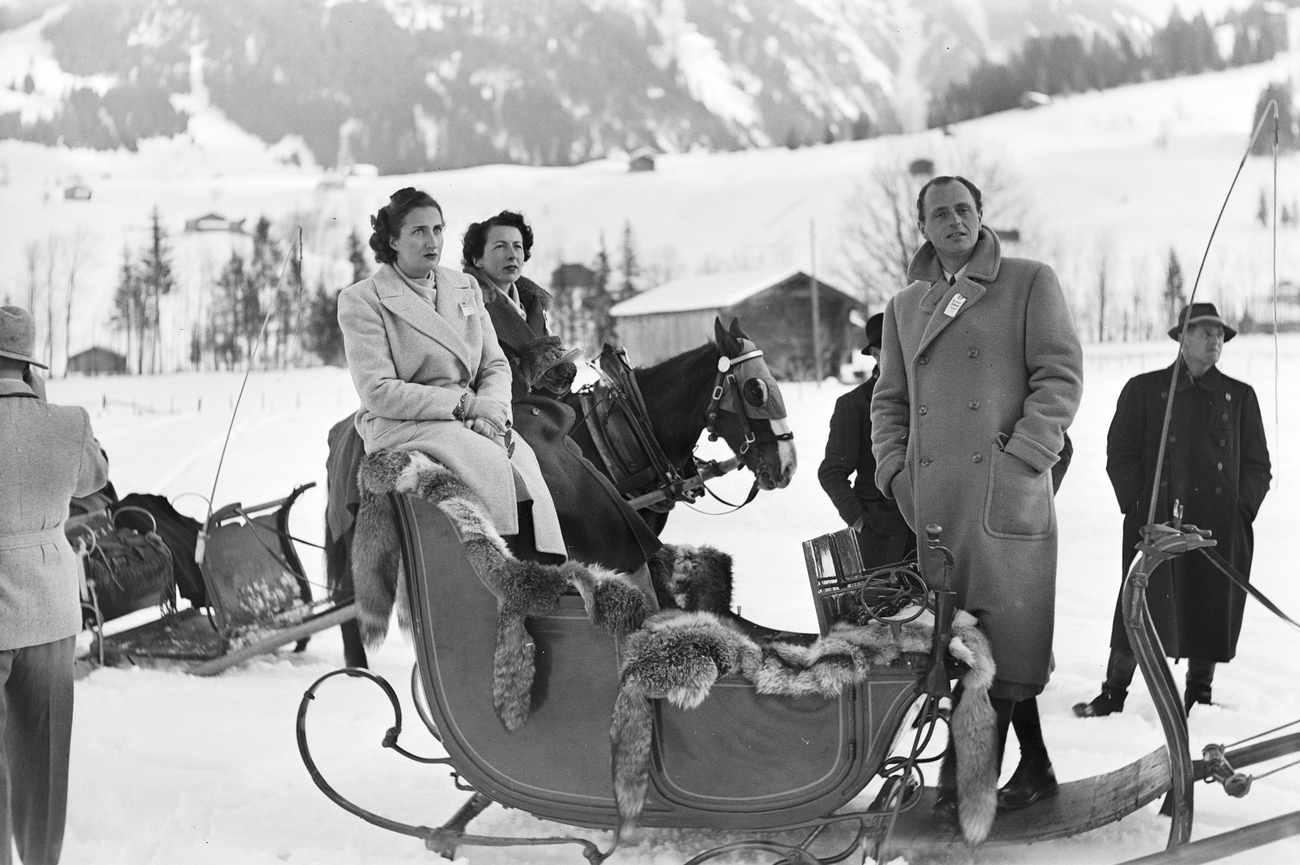
More
Switzerland: a destination fit for a King
But back to celebrity chef Anton Mosimann, who is held in such high regard by the Royals. A Swiss restaurateur has already served the English crown before. César Ritz from Valais was known as the ‘king of hoteliers and hotelier of kings’. When Victoria’s son Edward VII was crowned king in 1903, the British royal family entrusted the entire coronation festivities to César Ritz. But the luxury hotelier, with establishments in Nice, Vienna, San Remo, Lucerne, Monte Carlo, Baden-Baden, Rome and London, found the task more than he could handle, and had a breakdown.
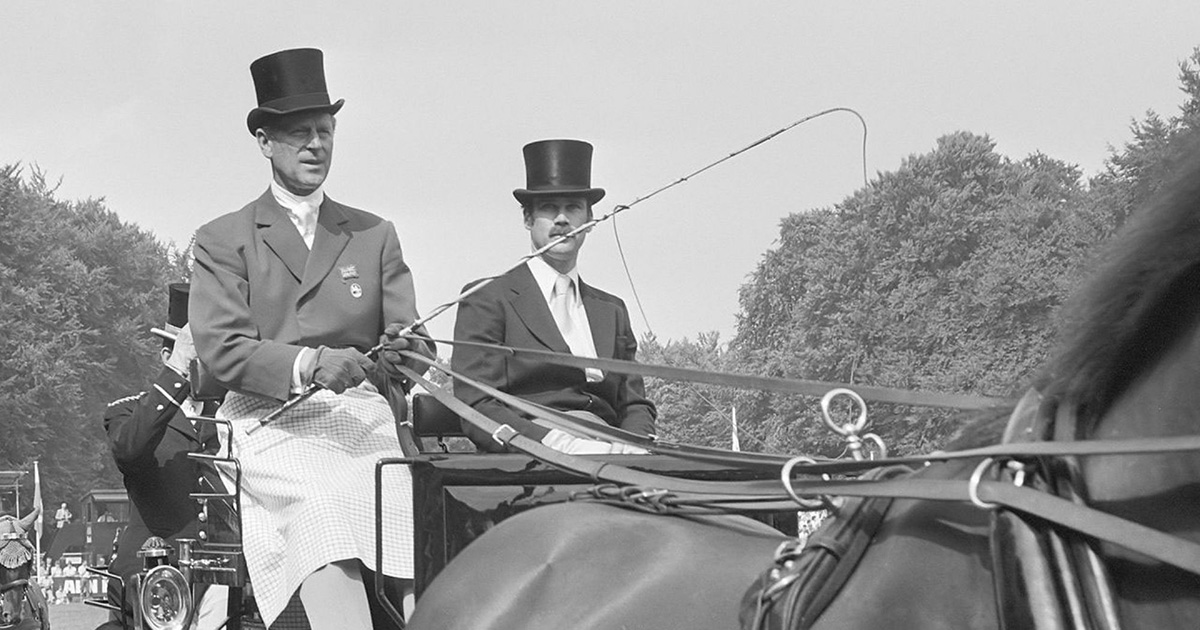
He never recovered from it, suffering from severe depression for the rest of his life. This is one of the reasons why it was so important for relations between Switzerland and the British royal family that Anton Mosimann delivered a brilliant performance at Kate and William’s wedding breakfast. And he did just that: the festive event went down in the annals as the ‘wedding of the century’.

In compliance with the JTI standards
More: SWI swissinfo.ch certified by the Journalism Trust Initiative

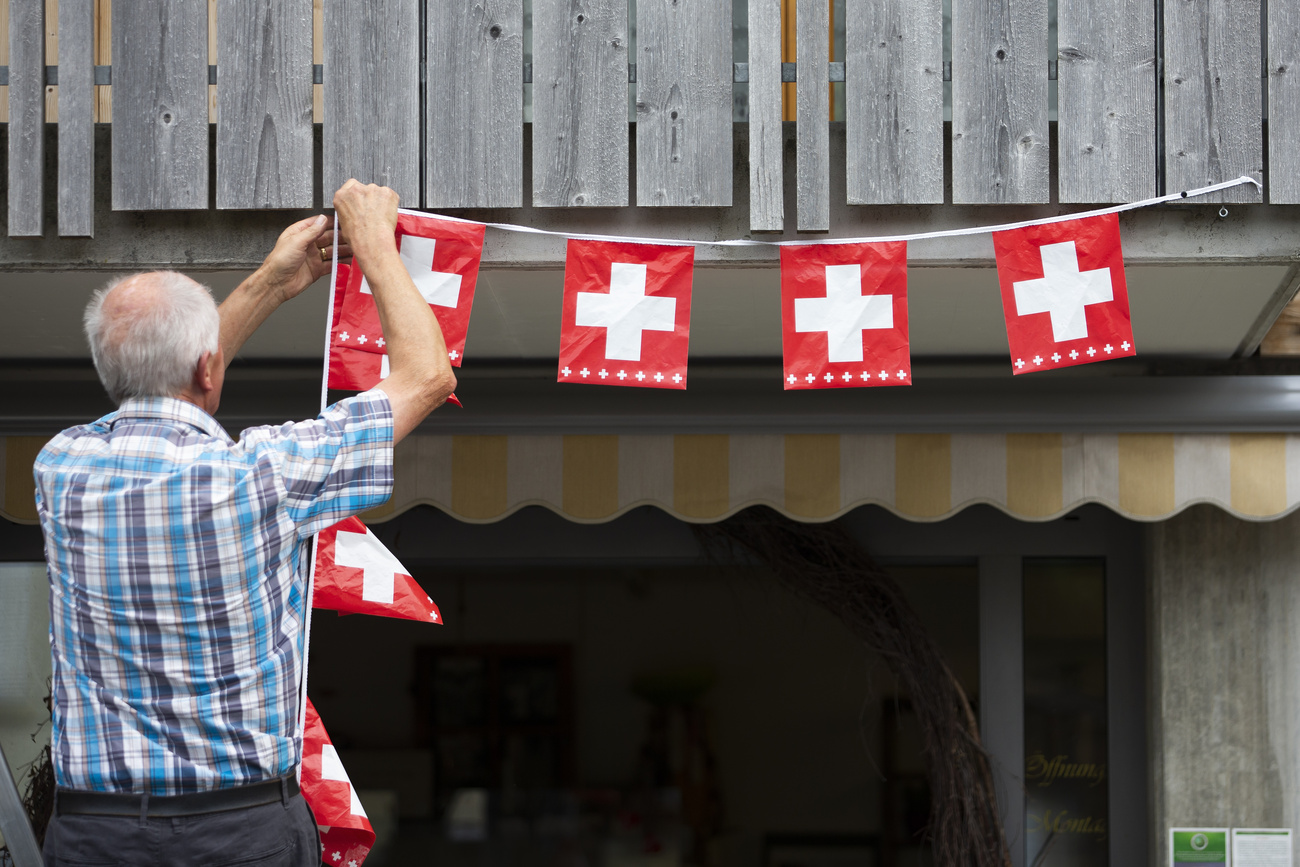














![The four-metre-long painting "Sonntag der Bergbauern" [Sunday of the Mountain Farmers, 1923-24/26] had to be removed by a crane from the German Chancellery in Berlin for the exhibition in Bern.](https://www.swissinfo.ch/content/wp-content/uploads/sites/13/2025/12/01_Pressebild_KirchnerxKirchner.jpg?ver=a45b19f3)











You can find an overview of ongoing debates with our journalists here . Please join us!
If you want to start a conversation about a topic raised in this article or want to report factual errors, email us at english@swissinfo.ch.